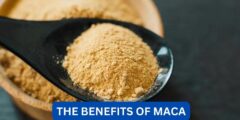Dates are a type of fruit that come from the date palm tree, scientifically known as Phoenix dactylifera. They have been a staple food in the Middle East and North Africa for thousands of years and have gained popularity in other parts of the world in recent years. These small, oval-shaped fruits have a sweet and caramel-like taste, making them a popular ingredient in desserts and snacks. However, dates are not just delicious, they are also packed with numerous health benefits. In this article, we will explore the nutritional value and health benefits of dates.
Contents
The Nutritional Profile of Dates
Dates are a rich source of essential nutrients, including vitamins, minerals, and fiber. According to the United States Department of Agriculture (USDA), a 100-gram serving of dates contains the following nutrients:
- Calories: 277
- Carbohydrates: 75 grams
- Fiber: 7 grams
- Protein: 2 grams
- Fat: 0.2 grams
- Vitamin B6: 0.2 milligrams
- Potassium: 696 milligrams
- Magnesium: 54 milligrams
- Copper: 0.4 milligrams
- Manganese: 0.3 milligrams
As we can see, dates are a rich source of carbohydrates, making them a great source of energy. They also contain a significant amount of fiber, which is essential for maintaining a healthy digestive system. Additionally, dates are a good source of vitamins and minerals, including vitamin B6, potassium, magnesium, copper, and manganese.
Read:What are the benefits of tart cherry juiceHealth Benefits of Dates
1. Rich in Antioxidants
Dates are packed with antioxidants, which are compounds that protect our cells from damage caused by free radicals. Free radicals are unstable molecules that can cause oxidative stress, leading to chronic diseases such as cancer, heart disease, and diabetes. Studies have shown that dates contain a high concentration of antioxidants, including flavonoids, carotenoids, and phenolic acids, which can help prevent cell damage and reduce the risk of chronic diseases.
2. Promotes Digestive Health
The high fiber content in dates makes them beneficial for digestive health. Fiber helps regulate bowel movements, prevent constipation, and promote the growth of healthy bacteria in the gut. A study published in the Journal of Agricultural and Food Chemistry found that dates contain both soluble and insoluble fiber, which can help improve digestion and prevent digestive disorders.
3. Boosts Brain Function
Dates are a good source of vitamin B6, which is essential for brain health. Vitamin B6 helps produce neurotransmitters, which are chemicals that transmit signals between nerve cells. These neurotransmitters are crucial for cognitive function, mood regulation, and overall brain health. A study published in the Journal of Nutrition, Health & Aging found that vitamin B6 deficiency is associated with cognitive decline and dementia in older adults. Therefore, including dates in your diet can help improve brain function and prevent age-related cognitive decline.
Read:What are the benefits of pilates?4. Supports Heart Health
Dates are a rich source of potassium, a mineral that plays a vital role in heart health. Potassium helps regulate blood pressure by counteracting the effects of sodium, which can cause high blood pressure. High blood pressure is a significant risk factor for heart disease, stroke, and other cardiovascular diseases. A study published in the American Journal of Clinical Nutrition found that a diet high in potassium can help lower blood pressure and reduce the risk of heart disease.
5. May Help Manage Diabetes
Despite their high sugar content, dates may actually be beneficial for people with diabetes. This is because dates have a low glycemic index, which is a measure of how quickly a food raises blood sugar levels. A study published in the Journal of Nutrition and Metabolism found that consuming dates did not significantly increase blood sugar levels in people with type 2 diabetes. Additionally, dates contain fiber, which can help slow down the absorption of sugar in the bloodstream.
6. Aids in Weight Management
Dates are a nutrient-dense food, meaning they provide a high amount of nutrients for relatively few calories. This makes them a great addition to a weight loss or weight management diet. The fiber in dates can also help you feel full for longer, reducing the chances of overeating. A study published in the Nutrition Journal found that consuming dates as part of a healthy diet did not lead to weight gain and may even promote weight loss.
Read:What are the benefits of potassium?How to Incorporate Dates into Your Diet
There are many ways to incorporate dates into your diet, including:
- As a snack: Dates can be eaten on their own as a quick and healthy snack.
- In smoothies: Add dates to your favorite smoothie for a natural sweetener and added nutrients.
- In baked goods: Dates can be used as a natural sweetener in baked goods like muffins, cookies, and energy bars.
- In salads: Chopped dates can add a sweet and chewy element to salads.
- In savory dishes: Dates can be used in savory dishes like tagines and stews for a touch of sweetness.
Conclusion:
Dates are not only delicious but also incredibly nutritious. They are a rich source of essential nutrients and antioxidants, making them beneficial for overall health. From promoting digestive health to supporting heart health and brain function, dates offer a wide range of health benefits. So, next time you are looking for a healthy and tasty snack, reach for a handful of dates and enjoy all the benefits they have to offer.









